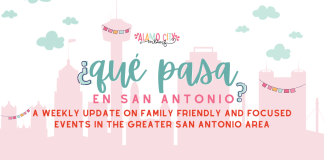Grief is an emotion shared by every single person on the planet, transcending all cultures, languages, religions, and even time. As humans, we are all bound in commonality by the destruction grief leaves in its path. The one thing we don’t share is how we deal with it. For better or worse, we all show up for grief in different ways.
I am not a therapist, nor do I play one on television; this is simply an observation: in all my years of living I have noticed that grief seems to live in two camps:
There are those who wear their grief like a wrecking ball around their necks and drag it wherever they go. It defines them, defeats them, and leaves them in an acute state of disadvantage. These people own their grief and live in perpetual asphyxiation, locked in its grip.
Some of us mask our grief and consider any signs of it tantamount to wearing a scarlet letter. These are the internalizers, the fixers, the resuscitators, the people who, half-alive inside, walk among the living, placing their own grief on the back burner to squelch the flames of grief in others.
I belong to the latter.
I’ve been struggling to find words lately. Words for my diary, words to engage people in my space in meaningful conversation about the most meaningless and banal things. I mean, really struggling, like a salmon swimming uphill. So per a close friend’s recommendation, I begrudgingly called on a writing coach to help me identify what coaches call the “root cause” of my writer’s block. I’ll spare you the long and dry details except to say that the cause of my empty well of words is, in a word, grief.
I’ve been grieving.
My father passed away unexpectedly three years ago this September, and now that I’ve been forced to face the obstacle that has kept me from free-thinking and any semblance of creativity, this one slaps me in the face. I have to say, he is probably right. If you asked me today, “How did you grieve your father?” I’d say, “I cried.” That’s it.
What was I supposed to do? Arrangements had to be made, Mother had to be comforted, people had to be called, a eulogy written. People had to be fed, dishes had to be done, not to mention the care-giving I had to give my own children during this really confusing time. It was like being on auto-pilot, and as usual, handling others’ needs fueled me.
The ironic thing? I learned how to be this way from my father.
There’s a problem? Fix it.
You need a solution? Find one or make one.
Don’t have the bootstraps to pull yourself out of the mess you created? Fashion your own.
Someone needs help? Help them.
In many ways, although unintentionally, he taught me to take care of others first before I took care of myself. Could this adopted philosophy of my dad’s have been why he was taken from me so early, one day before his 65th birthday?
What did this mean for me?
What if the messaging he’d imparted, instead, went something like this:
There’s a problem? Take time to sit and reflect on it.
You need a solution? Call on friends and family to help you. You can’t do it on your own, effectively.
Don’t have the bootstraps to pull yourself out of the mess you created? That’s OK. You’ll never lose because you either win or learn.
Someone needs help? Yes, help them. But first help yourself. This is a lesson even airlines teach you: secure your own mask first, then help others.
It’s hard to reflect on the dogmas I’ve been raised on and then, at 40-something, try to change them, but I can’t help but wonder…
If he had been kinder to himself, if he had taken some time to practice good self-care, spent time alone, taken walks, been more social, purchased new shoes—the list goes on—would I have ended up a different person? Don’t get me wrong; I love the person I am. I inherited a lot of special traits from my father for which I’m thankful. I’m a hard worker, I’m funny, I’m trustworthy, I love people, and I’m a constant learner.
But I’m also a fixer, and I have an easy time putting others ahead of myself. I find a certain peace with making things better. It makes me feel validated to be there for others and help solve them out of their problems—so much, in fact, that yes, it has been to the exclusion of what I need.
What is it that I need? How do I go about properly grieving my father now, three years after he got up from bed, fell to the ground, and never got back up?
I cry. Let some time go by. And then I cry some more when the need arises. I let myself feel the pain of his absence and try to accept that he is gone.
Then when the dust settles and the tears dry, I reflect on exactly what it was that made my dad my hero and all of the qualities that made me want to chase life in the same manner that he did. I will embrace all that he bestowed on me with a quiet appreciation. And then I remember that although those qualities were admirable, sometimes they were unrealistic. If I expect to be centered, whole, and healthy, some things will have to change.
I realize that I need to define what it means to put myself first and then honor my dad by doing just that: securing the mask on my face first before helping others.
He would have wanted that for me.
I think he wants that for me now, even if I can’t hear him say it.
I’ve also realized that there is a third camp in which grief lives, comprised of the people from the first two. These are the people who have had the moment that Leonard Cohen so poignantly sang about: They let the light shine through the crack of what was broken because it was time. They live with their grief, and with help, make their way through the messy sludge of it to forge on living because there is no choice. Is it ever gone? No. Will it ever go away? No. But with time, you learn to live with it.
And when the light shines through your grief, you see things like you never saw them before.
The love you feel for the people who make your world spin becomes sweeter because it is punctuated by the passing minutes of time. Perspective rains down on the hard work you worry and kill yourself over. The first hints of the crisp autumn winds trace your face with a welcoming caress that awakens you. The time you spend scrolling and monitoring your likes becomes vapid, because you are now equipped with the knowledge that time is fleeting.
Whatever group you belong to, we can agree on one thing: Grief teaches us a lot. The most important thing it can teach us is, simply, how to live.











